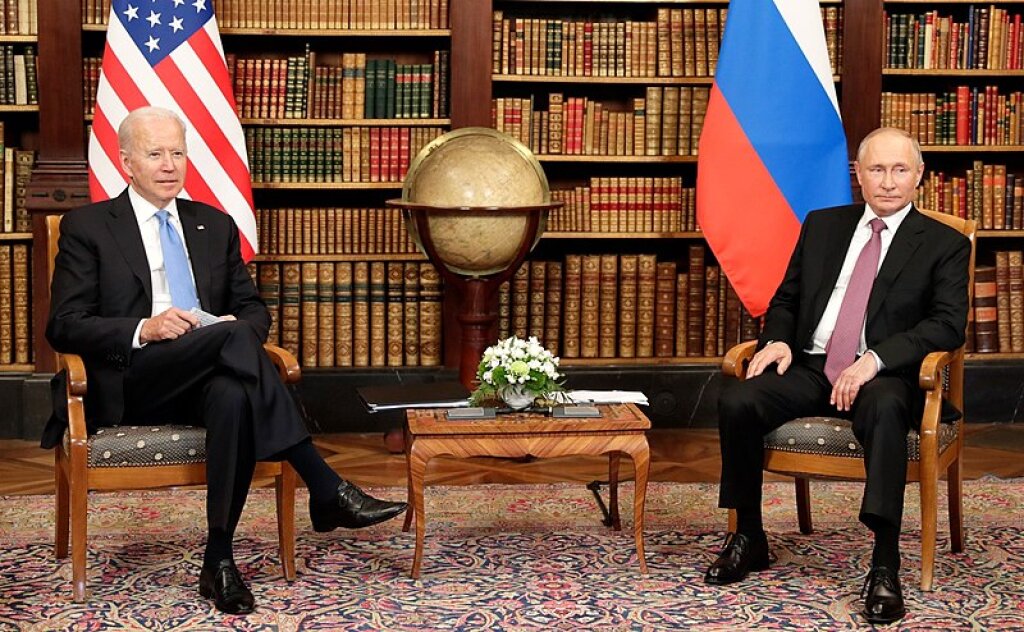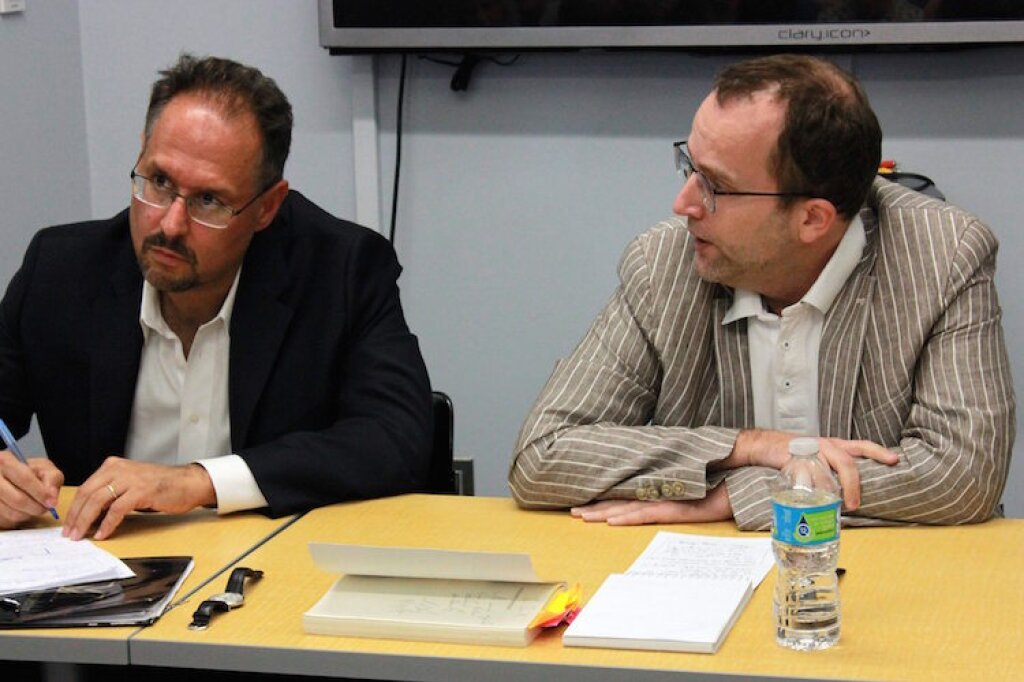On November 29th, 2021, the Jordan Center and the Columbia University Harriman Institute hosted experts for a panel on “The State of US-Russia Relations One Year into the Biden Administration.” Speakers included Timothy Colton (Morris and Anna Feldberg Professor of Government and Russian Studies at Harvard University), Alexander Gabuev (Senior Fellow and Chair of the Russia in the Asia-Pacific Program at Carnegie Moscow Center), Rose Gottemoeller (Steven C. Házy Lecturer at Stanford University Freeman Spogli Institute for International Studies and Center for International Security and Cooperation, Former Deputy Secretary-General of NATO) Robert Legvold (Marshall D. Shulman Professor Emeritus of the Department of Political Science at Columbia University and previous Harriman Institute Director), and Maria Snegovaya (Postdoctoral Fellow of Political Science at Virginia Tech University and visiting scholar at the Institute for European, Russian, and Eurasian Studies and Illiberalism Studies Program at George Washington University). This talk was moderated by Jordan Center Director Joshua Tucker and Harriman Institute Director Alexander Cooley. Note: This event took place before the larger escalation of negotiations related to the buildup of Russian troops on the Ukrainian border that intensified in late 2021 and early 2022. Watch the event recording on YouTube here.
The first speaker on the panel, Robert Legvold, opened by saying that in Biden’s first year some aspects of the US-Russia relationship improved while others remained unchanged, He stated that by the end of Trump’s presidency, relations had ended up where they began: hostile, unproductive, and disengaged. Now, under Biden, the US and Russia are more engaged at multiple levels: senior officials at many levels are engaged in talks that have been substantive and productive, and a working group for future arms control has been set up. However, neither side claims that progress has been made. For example, on the issue of cybersecurity, the US government claims that Russia has done nothing to curb ransomware groups that attack US infrastructure or stop misinformation efforts on social media. Legvold believes that among many things, the two sides need “to find ways to integrate their current behavior” and recognize their own roles in the deterioration of relations. He believes that the US specifically needs to reanalyze assumptions of Russia in its policy to reframe critical issues that are the most divisive (such as Ukraine), and to “recalibrate the tools in its policy arsenal” (for example, the many Russian sanctions need to be rationalized).
The second speaker, Rose Gottemoeller, began by saying that Russia and the US have a critical and persistent relationship, and that it is therefore crucial to keep that relationship strong. She said that she was happy to see joint working groups established and has high hopes for their progress. She mentioned both the working group on replacements of the START (Strategic Arms Reduction) treaty, as well as the working group to discuss the “new strategic equation.” She believes the latter is more important because it gives the countries the opportunity to think and work together on handling the abundant new military technology available today, and also offers more ability to monitor each other’s strategic arms control. She goes on to speak about how these talks are very easily interrupted by crises in Ukraine—talks were going smoothly in the mid 2010s until the invasion of Crimea occurred, the “plug was pulled and never plugged back in again.” She urged for increased awareness regarding crises and trends in policy in Russia because as hard as the US and Russia try to keep these events separate, such crises typically do interfere with talks.
The third speaker, Alexander Gabuev, chose to discuss the Russian perspective on recent events and changes in the US-Russia relationship. He stated that the Russian government has a fundamental misunderstanding about American foreign policy goals in regards to Russia. He claimed that the Russian government believes the US wants to “park” Russia somewhere and ignore the glaring issues it has with Russia. Russia believes that the US only wants to address the truly dangerous and tangible issues, and then pass the rest of the problems on to the next US president. This approach has worked so far, but it has many shortcomings, and events like the pandemic impact progress as well. Other major issues that the countries must face in their relations are misreadings of the Ukraine situation, and the question of “what concession can the US give so Russia doesn’t make any more problems?” Russia is continually testing these limits and seeing what concessions are made, and this emboldens Russian opportunism. Gabuev agrees with Legvold that “mutual misperceptions are just too deep and that the core issues won’t be addressed on Biden’s watch or Putin’s watch.” It requires both countries to change their foreign policy regarding the other and while they can be managed, these core issues will not change until then.
The fourth speaker,Maria Snegovaya, began by talking about how Putin has seen 5 different presidents in the US, and while most of these presidents enter with an agenda of de-escalation in their policies towards Russia, they leave with deteriorating US-Russian relations. Putin’s worldview on these relations is “revisionist”, and relies on “two pillars of Russian foreign policy”: sovereignty (the Kremlin’s complete control over all domestic developments in Russia) and multipolarity (Russia’s primacy in the post-Soviet space and regional spheres of its interests—including Ukraine). The US and Russia have attempted some negotiations on issues such as climate change or nuclear arms control that allow the US to push the responsibility of creating tougher policy on Russia onto the US’s European allies while the Biden administration focuses on China. Another issue plaguing the US-Russia relationship is the lack of understanding on the US’s part of what the Kremlin’s intentions actually are–– the current debate about the purpose of the military buildup at the Ukrainian border is an example of this. Putin realized his strategy of pushing boundaries works and that the manufactured escalation at the Ukrainian border forces the US to start up a dialogue or even make concessions. The second pillar of Russian foreign policy, maintaining control over post-Soviet states, can likely be achieved because of the results of these actions.
The fifth and final speaker, Timothy Colton, talked mostly about the Russian people’s attitudes regarding what is happening in their country and abroad. New Russian scholars are more interested in questions of values. The old talks of values a decade ago mostly centered around how the US pushed talks of democracy on Russia, and the Russian people simply did not want to hear any more of that. Now, Russian scholars view the US in a much more complex light. He went on to talk about the Ukraine situation and how he doesn’t think the Russian government will “welcome dialogue on this question” despite it having consequences for everyone. He thinks despite the Russian government’s unwillingness to discuss the possible invasion, the US must demand discussion for everyone’s wellbeing.



